Making Tax Digital for Self-Assessment: A Guide for Property Landlords
By a Property Tax Accountant | Property Accountants London
The UK tax landscape is undergoing significant transformation, with HMRC’s Making Tax Digital (MTD) initiative aiming to revolutionise the way taxpayers report and manage their finances. While VAT-registered businesses have already adapted to the MTD regime, the next phase targets self-assessment taxpayers, including property landlords.
This article provides a professional overview of Making Tax Digital for Self-Assessment (MTD for ITSA), its implications for landlords, and how a qualified property tax accountant can support a smooth transition. It also highlights the importance of working with expert property accountants in London, where the complexities of rental property portfolios and compliance are heightened due to higher property values and diversified ownership structures. 
What is Making Tax Digital for Income Tax Self-Assessment (MTD for ITSA)?
MTD for ITSA is part of the UK government’s digital tax strategy, requiring self-employed individuals and landlords earning over £50,000 annually (from April 2026) to maintain digital records and submit quarterly updates to HMRC using MTD-compatible software.
This shift marks a move away from the traditional annual tax return model. Instead of submitting a single Self Assessment once a year, landlords will need to:
- Keep digital records of income and expenses.
- Submit quarterly summaries to HMRC.
- Submit an End of Period Statement (EOPS) to finalise income for the year.
- Submit a Final Declaration, including other income (such as dividends or interest), to determine final tax liability.
The £30,000–£50,000 income group is expected to follow from April 2027, making it critical for landlords to start preparing now.
Why Does MTD for ITSA Matter for Landlords?
Landlords who own one or more rental properties must ensure their record-keeping and reporting processes align with the new requirements. This is particularly significant for:
- Accidental landlords who may not see themselves as “business owners” but still fall under MTD due to income thresholds.
- Portfolio landlords who manage multiple properties and may already use spreadsheets or traditional methods for tracking income and expenses.
Failing to comply with MTD requirements could lead to penalties, additional administrative burden, and potential tax errors.
Working with an experienced property tax accountant ensures landlords receive tailored advice on compliance and tax efficiency.
Key Changes Landlords Need to Prepare For
- Digital Record-Keeping
Landlords must keep all records of income and allowable expenses digitally. This includes rent received, letting agent fees, mortgage interest (if deductible), maintenance costs, insurance, and other legitimate expenses.
While spreadsheets can be used, they must link to MTD-compatible software via digital links. Manual data entry is not permitted once the quarterly submissions begin.
- Quarterly Submissions
Quarterly updates will include a summary of income and expenses. Although these updates won’t generate a tax bill, they provide HMRC with a rolling view of your taxable income throughout the year.
This change improves transparency but increases the frequency of reporting, which can be daunting without professional support.
- End of Period Statement (EOPS) and Final Declaration
At the end of the tax year, landlords must submit a final declaration confirming all figures, similar to the current Self Assessment. The EOPS will correct any errors from quarterly updates and add any additional claims or adjustments.
The Role of a Property Tax Accountant
A property tax accountant is essential in helping landlords navigate the complexities of MTD for ITSA. They offer:
- Digital software guidance: Helping select, set up, and manage MTD-compliant software solutions.
- Compliance management: Ensuring deadlines are met and updates are submitted accurately.
- Tax planning: Identifying opportunities for legitimate deductions, allowances, and efficient structuring to reduce tax liability.
- Record-keeping support: Advising on best practices for capturing and categorising property income and expenses.
Their expertise is particularly valuable for landlords with complex portfolios, jointly-owned properties, or diversified income sources.
Why Choose Property Accountants London?
Property accountants London based bring added value due to their exposure to:
- High-value property markets, where transactions and compliance issues are more intricate.
- Non-resident landlords, who may have specific reporting obligations.
- Buy-to-let mortgage structuring and capital gains implications, especially relevant in London’s dynamic housing market.
- Limited company landlords, which are increasingly common in the capital due to changes in mortgage interest relief.
London-based property accountants are well-versed in handling nuanced landlord scenarios and can advise on broader financial matters, such as incorporation, inheritance planning, and diversification strategies.
Choosing the Right Digital Tools
MTD compliance requires landlords to adopt digital tools. Some recommended solutions include:
- Xero, QuickBooks, or other cloud accounting software for small landlords.
- Landlord-specific platforms like Hammock or Landlord Vision, which offer property-focused features.
- Bridging tools for landlords still using spreadsheets, allowing MTD-compliant submission via API.
Choosing the right software depends on the complexity of your property portfolio, familiarity with technology, and whether you manage your accounts personally or via a professional accountant.
Getting Ready: Practical Steps for Landlords
To prepare for MTD, landlords should:
- Review income levels: Determine whether the £50,000 threshold applies.
- Digitise records: Start capturing income and expense information digitally.
- Speak to a property tax accountant: Get professional advice tailored to your situation.
- Register for MTD for ITSA: When registration becomes available to your income group.
- Test compatible software: Don’t wait until the deadline – familiarise yourself with tools now.
- Prepare for quarterly filing: Set up calendar reminders or work with your accountant to avoid missing deadlines.
Final Thoughts
Making Tax Digital for Self-Assessment marks a pivotal change for property landlords in the UK. While it may seem like a burden at first glance, it offers long-term benefits in efficiency, accuracy, and financial clarity. However, the transition requires careful planning and the right support.
Partnering with a professional property tax accountant, particularly one with experience as property accountants London, ensures you stay ahead of compliance, reduce tax risk, and make informed financial decisions for your property business.
With MTD for ITSA just around the corner, now is the time to act. Don’t wait for the deadline — get expert advice, go digital, and future-proof your property finances.
Need help navigating MTD? Speak to a qualified property tax accountant or consult leading property accountants London today to ensure you’re fully prepared for the digital tax future.
